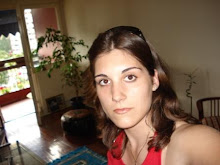People and love in Dubliners and in The God of Small Things
It is said that love leads toward the fulfillment of one’s life. In Dubliners and in The God of Small Things love seems to be an uphill struggle. A tremendous desire to love and to be loved is what made the characters of both books lost on their way to contentment.
Manly love is predominantly navigated by women. In the story A Little Cloud, Little Chandler believes that his wife holds the responsibility for the fact that he had not taken pleasure in his life. He finds himself entrapped and gradually becomes envious of Galaher who has no family to be his impediment. Chacko is besotted with Margaret. According to his viewpoint, there are physical needs on one side, and there is Margaret on the other side. The influence of Margaret is so immense that Chacko has not got over her yet, even after a number of years. In spite of Margaret’s second marriage, he still considers her his wife.
The love of the women is governed by the social appropriateness. No matter whether there is a simple tradition or the caste system, the women repress their emotions. This repression chiefly leads to destruction. Evelyn is firmly attached to household and her father. Though she is given a chance to love without restraint she does not take the offer because of her duties as a woman. Ammu is a fervent lover. Velutha develops into her salvation. He unties the collar around her neck. The inhibition of her feelings resulted in forgetting about the caste system. The untouchable becomes touchable, but with tragic outcome. Baby Kochamma is a mischievous lover. She tries to remind the twins of the etiquette while she herself followed the path which is considered to be morally inappropriate. She becomes blindly in love with Father Mulligham. She makes an attempt to seduce him by using the Bible as an excuse to speak to him.
The love of the children is traumatized due to the behaviour of the adults. The criterion of love is shaken. It is not comprehensible what the love toward a father is like and how to love a brother or a sister. For Rahel, love is like a glass bottle that can easily break into pieces. Throughout the novel she trembles whether she is going to be loved less than before. In Dubliners, the boy from the Araby is enchanted by the beauty of the girl for whom he remains unnoticed.
To conclude, the life of each individual in these two books became disturbed either because of unrequited love or because of insufficient portion of love. They all have a single but enormous fear – the fear of loneliness. It seems that they failed in striving to reach the love as a haven. The haven was their initial pursuit but it turned out to be destructive for every single one.
